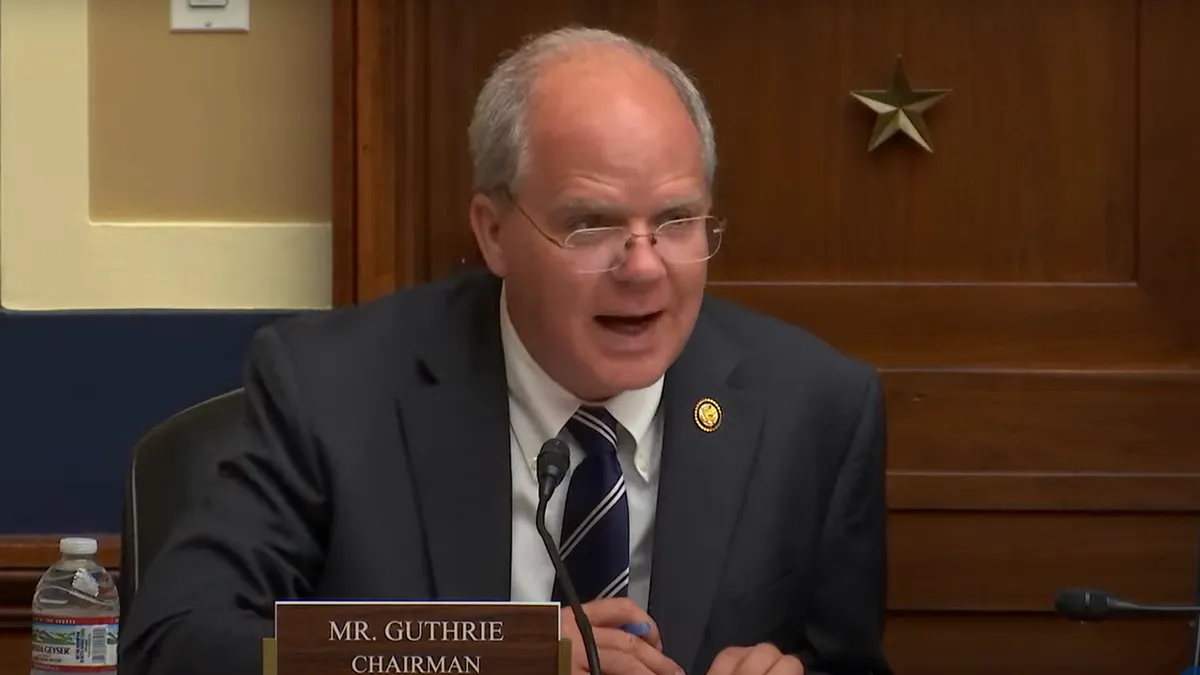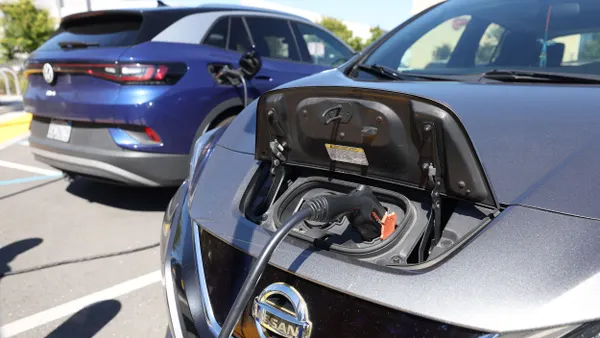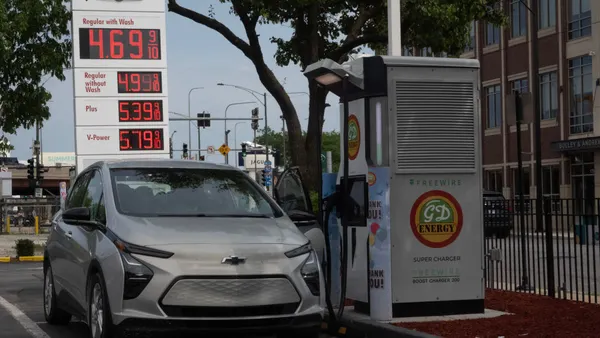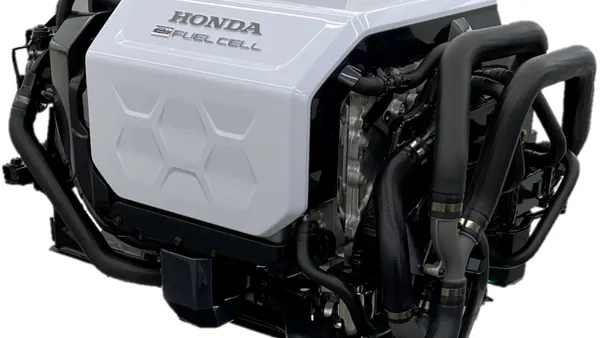Dive Brief:
- Republicans at a House energy subcommittee hearing on Tuesday criticized energy efficiency programs run by the federal government and made the case for legislation weakening appliance standards set by the U.S. Department of Energy.
- DOE’s appliance efficiency program requires the agency to review and set standards for a range of products every six years. Advocates say the program saves consumers billions on utility bills each year, but H.R. 4626, the Don't Mess with My Home Appliances Act, would authorize the Secretary of Energy to amend or revoke standards and would establish minimum thresholds for energy savings on new standards.
- The government’s appliance and equipment standards program “has strayed far from its original intent and now yields the minimum energy efficiency benefits while imposing ... costs on consumers and manufacturers,” Rep. Brett Guthrie, R-Ky., said at the hearing.
Dive Insight:
It is energy policy lore that efficiency — often called the cheapest kilowatt on the grid — was once fertile ground for agreement across the aisle. Whether or not that was actually the case, efficiency is now like most issues in Congress and is debated in partisan, political terms.
“I'm not surprised that we're here debating all this again,” Rep. Frank Pallone, D-N.J., said. “Energy efficiency used to be a bipartisan topic. Over the last few years, Republicans have politicized and polarized these common sense policies.”
President Donald Trump has pursued a deregulatory agenda that rolls back clean energy incentives and rules put in place by his predecessor, often arguing that they raise costs rather than save consumers money.
“President Biden’s DOE proposed and finalized new standards to regulate virtually every appliance American consumers use, forcing families to spend more for less reliable options,” Guthrie said Tuesday. “Today's homeowners spend about 34% more on appliances than they did 15 years ago.”
According to Guthrie, more than two dozen energy efficiency regulations finalized by Biden’s DOE added $60 billion in consumer costs.
During Biden’s term, DOE published standards for a range of equipment, catching up on a backlog of overdue reviews that began under President Barack Obama and expanded during President Trump’s first term. The rules included commercial rooftop heating and cooling units, circulator pumps, dishwashers, residential gas furnaces and more.
DOE in 2023 estimated stronger appliance standards finalized under President Biden would save consumers about $1 trillion and cut emissions by 2.5 billion metric tons over three decades.
Since beginning his second term, President Trump has taken steps to undermine the rules. DOE in February postponed implementation of standards for central air conditioners, clothes washers and dryers, general service lamps, walk-in coolers and freezers, gas instantaneous water heaters, commercial refrigeration equipment, and air compressors. The agency also said it planned to create a new energy efficiency category for natural gas tankless water heaters, exempting them from Biden-era rules that critics said would essentially ban some types of water heaters.
While missed standard review deadlines piled up in Trump’s first term, lawmakers during his second term are considering legislation that would make it easier to undermine existing appliance efficiency rules. H.R. 4626 was introduced by Rep. Rick Allen, R-Ga., in July to reform the Energy Policy and Conservation Act, which authorized DOE’s appliance program.
The bill “is a necessary measure to prevent future administrations from issuing burdensome standards on household appliances that would drive up costs and reduce availability,” Allen said in a statement. The bill would allow the Secretary of Energy to amend or revoke a standard “if it increases costs for consumers, does not result in significant energy or water savings, is not technologically feasible, or results in the unavailability of product,” according to the statement.
EPCA says energy savings standards must be refreshed when they are technologically feasible and result in “significant” savings.
“Unfortunately, it never quantified significant conservation of energy. And we've seen over time, it's become ‘eye of the beholder,’” Ben Lieberman, a senior fellow at the Competitive Enterprise Institute, told lawmakers at Tuesday’s hearing.”DOE will set a standard, even if the energy conservation seems to be trivial.”
"All of these standards raise the upfront cost of appliances, and in some cases, like the upcoming furnace and water heater regulations, the increase is so steep that homeowners may not earn back the upfront costs in the form of energy savings,” Lieberman said. “The law has a provision that the initial cost increase not be more than that is earned back within three years. But this metric is not mandatory and is routinely bypassed."
Efficiency advocates disputed Lieberman’s statement, however. The Appliance Standards Awareness Project noted the final furnace rule and water-heater rule show average life-cycle cost savings of $350 and $859, respectively.
“So these paybacks are well within the product life span and result in hundreds of dollars in net overall savings for consumers,” ASAP Executive Director Andrew deLaski said in an email.
Lieberman also told lawmakers he believed proposed legislation “could go further.”
“There are several home appliance categories that have already been so badly over regulated they should be exempted from any further rules. I would suggest dishwashers, washing machines and light bulbs. I also believe that stoves should have never been regulated in the first place and ought to be excluded,” he said. “But overall, the less government interference with our clients choices, the better. If we can't sunset the program entirely, let's at least do some judicious pruning."
But “scrapping efficiency standards would add to consumers' monthly energy costs — that's never a good idea, but especially troublesome right now given rising electricity rates,” deLaski said. If the administration is successful in rolling back standards it would “have big costs for consumers and businesses, driving up energy bills.”
Eliminating appliance efficiency standards “is not in the best interest of American consumers, it’s in the best interest of bad manufacturers who want to sell cheaply-made, energy-sucking appliances,” Sierra Club Building Electrification Campaign Director Srinidhi Sampath Kumar said in a statement. “By attacking appliance efficiency standards, Republicans are making it clear their allegiances lie with the corporate executives that fund their campaigns, not with the constituents they represent who are struggling with high energy bills.”















